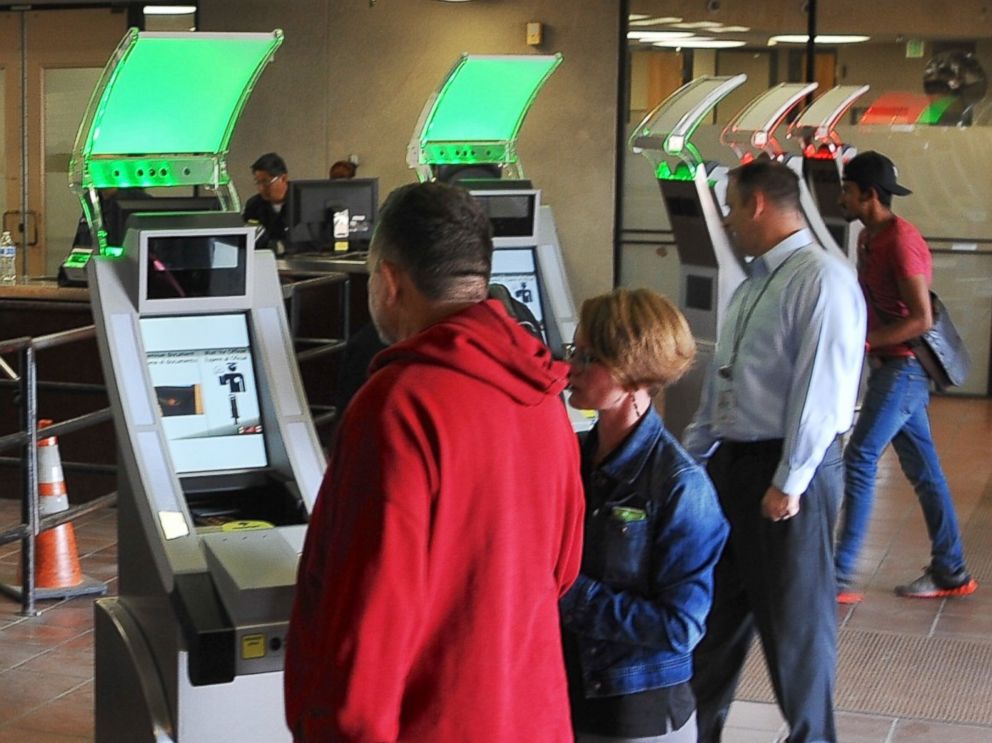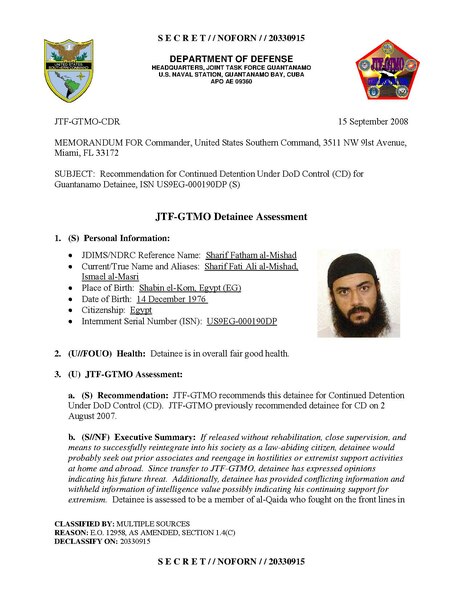Take a Country on the Brink. Now Add 10,000 Asylum Hearings a Week.
Cargo containers used as courthouses. Camps flooded with sewage. A government on the verge of collapse. Why the EU refugee deal is a disaster for Greece.
FP: ATHENS — The ferries bound from the eastern Aegean Sea to Athens reach the port of Piraeus at the E2 Terminal. Immediately confronting disembarking passengers is a five-story banner proclaiming that, two-and-a-half millennia ago, the Greeks won a naval battle in the nearby straits of Salamis. Just below the banner, a concrete pier stretching several hundred meters into those straits is now the site of a tent city.
The 1,600 inhabitants of this city share 45 toilets, shower at the homes of local volunteers, and are coached in elementary Greek as they wait in parallel lines — “Men on the left! Women and kids on the right!” — for pasta and tangerines. International photographers capture their every movement. Out of a green cargo container, volunteer nurses distribute tampons and baby formula while from the back of a van, volunteer medical specialists pick through hair for lice during their breaks from local hospitals. Plates and trays are washed in a trough connected to the Athenian sewage system. Recent fist fights between Syrians — who are, broadly speaking, from middle-class families — and Afghans — typically poor, rural men — have led to the division of the pier into twin encampments: The Afghans face the sea; the Syrians, Iraqis, and Kurds face Athens.
A Greek state that cannot even provide basic services to these refugees has now been placed, as part of a deal struck this month between the European Union and Turkey, at the center of an enormous task. In return for 6 billion euros and vague promises of visa-free travel for its citizens, Turkey will supposedly take back anyone currently attempting to enter Greece. In exchange, for every person turned away at the Greek border, a Syrian will supposedly be relocated from a Turkish camp to an EU country willing to take him or her in. The execution of this deal, however, hinges on Greece successfully processing, with breathtaking speed, each individual who arrives in the country — determining where he or she came from and whether he or she is eligible for asylum.
Eight vessels, 30 coach buses, and 4,000 new workers — including several dozen Frontex police officers and potentially 1,000 army and security staff — will eventually be dispatched from various EU countries to Greek borders to help enforce the agreement by determining their eligibility as “exchangeable” refugees. But, even prior to their arrival, the Greek government is still responsible for documenting some 10,000 incoming asylum-seekers per week.
The process began last week on Lesbos: Each morning, the roughly 1,000 refugees who continue to arrive everyday from Turkey were detained, photographed, given a numbered orange wristband, read their rights — “please be patient” — and bussed to a camp near the village of Moria. There, 60 judges operating out of makeshift courts — mostly cargo containers and tents — presided over appeals committees for any refugee who refused to leave Greece voluntarily. Arabic specialists parsed accents to determine whether Syrians have come from sufficiently dangerous swaths of their country to qualify for consideration of eventual asylum. “There are certain questions we can ask to make sure they’re telling the truth,” one of these specialists, a volunteer named Dionysia, told me in Piraeus, before departing for Lesbos. “‘What is the biggest street in Aleppo?’ ‘Which river runs through Homs?’” To the chagrin of many Greeks, Turkish observers are working within these deportation centers — at Lesbos and elsewhere — to determine if those refugees actually passed through Turkey on their way to
Greece. (Only the ones who did will be accepted back.) “How can you tell if someone without a passport has passed through Turkey?” I asked Dionysia. She shrugged.“How can you tell if someone without a passport has passed through Turkey?” I asked Dionysia. She shrugged.Meanwhile, the government tasked with handling this mammoth organizational project teeters on the edge of collapse. The events of last summer demonstrated that a coalition of nationalists and former communists could find ways to cooperate during a fiscal crisis — namely, by invoking patriotism as a last plank against the technocrats of the EU. But virtually no common policy unites the ruling Independent Greeks-Syriza coalition when it comes to refugees. The leader of the right-wing Independent Greeks, Defense Minister Panos Kammenos, courts popularity by attacking the “imminent Islamization of Greece.” He refuses to distribute Greek army rations to refugees on the grounds that the Greek military is not a “catering service.” Syriza, a left-wing political party, takes a different stance. It came to power on a promise to dismantle all detention centers in Greece (a promise it has nevertheless broken); last week, members of its youth organization hung banners from the Acropolis calling for the opening of all national borders. The coalition nearly collapsed early this month when Syriza’s alternate immigration minister, Ioannis Mouzalas, called the former Yugoslav Republic of Macedonia by the name nearly every other country on earth uses — “Macedonia” — and was almost forced into resignation by Kammenos for his grievous affront to Hellenic identity. (Failos Kranidiotis, a prominent member of the opposition New Democracy party, was forced to resign when he said that Mouzalas should be hung publicly and that he himself would provide the rope.)
One of the few tactics both parties agree on is tying the treatment of refugees to the relieving of the national debt. Kammenos threatened to unleash a “wave of jihadis” on the rest of Europe if austerity measures continue unabated. But this strategy has proved mildly effective at best; Germany’s finance minister, Wolfgang Schäuble, has conceded that the Greek financial reforms will require some “flexibility” if Greece is to bear the brunt of Europe’s refugee crisis, but, so far, no changes to the bailout terms have been set.
The new arrivals, however, continue to come ashore. At the E2 Terminal, I met Muhammad from Iraq, who arrived in Piraeus on March 21. He speaks proficient English, worked 20 years as a tailor, and left his wife and 2-year-old daughter at their home in central Baghdad to seek a stable life in Germany, where he remains determined to go. In early March, Muhammad flew to Istanbul and then crossed to Lesbos in a dinghy with 120 others. Had he left Baghdad one week earlier, he would have likely crossed the Macedonian border and may have made it to Germany by now. Had he arrived several hours later than he did, he would have been turned back at Lesbos and very likely repatriated to Iraq under the terms of the new agreement, which makes no provisions for non-Syrians (though, in theory, looks at all asylum claims on their individual merits). As I got up to leave, Muhammad removed his sneaker and gestured to a horseshoe of scars curled around his left anklebone. Next, he pulled up his right pant leg, revealing a white cast that ended just below his knee. Both were the work of an Islamic State car bomb, he told me.
The current deal does nothing to address Muhammad — or the 53,000 other asylum-seekers like him who are now stuck in Piraeus, the former Olympic arenas in Attica, the squares of Thessaloniki and Kavala, the old Athens airport, the hills around Idomeni, and elsewhere in Greece. It’s likely they will be trapped in Greece indefinitely, victims of an EU that now feels it must overcompensate for months of doing nearly nothing to address the flow of refugees. Various entities and institutions allegedly trying to help people like Muhammad have found themselves at odds with one another and their goals incompatible: Last week, the United Nations refugee agency (UNHCR), Médecins Sans Frontières, the International Rescue Committee, Save the Children, and the Norwegian Refugee Council all announced their withdrawal from Greece in protest of the prison-like conditions of its detention centers. Greece, for its part, blames the fenced-off camps on the EU, which habitually threatens Greece’s expulsion from the Schengen zone if refugees aren’t more carefully documented. (At least three of the Brussels bombers are known to have passed through Greece.)
Responsibility for caring for the refugees, meanwhile, continues to fall on private donations from Greeks, though it’s unclear how long a citizenry whose GDP has been devastated by an output drop of one-quarter can continue to do so. The Greek right has been quick to exploit the situation. On Greece’s Independence Day last week, a mysterious group calling itself the “Sacred Band” paraded through the main boulevard of Thessaloniki crying, “Greece stands for Orthodoxy!” The conservative Greek media, meanwhile, stoked fears of Greece’s Islamization by running footage of an Egyptian girl marching in the Athens parade wearing a headscarf. (The girl had absolutely no connection to refugees; she was born in Greece.)
The most damning critique of the EU-Turkey deal — that it breaks the Geneva Conventions by turning refugees back toward conflict zones — is partially offset by another: Rarely has the EU shown the organizational capacity necessary for its implementation. It has made previous commitments to move 160,000 refugees from Greece and Italy to northern Europe by the end of 2016; only 937 have been relocated thus far. Nearly everywhere you go in Athens, you see how haphazard any potential efforts to implement the deal will be on the Greek end alone — and how, even if the deal does work, Greece will inevitably be put in the position of having to pick and choose who has a chance to move on to prosperous northern Europe and who doesn’t. Beyond the 53,000 refugees currently living in asylum camps, an estimated 500,000 “irregular migrants” have been living for years on Greek streets without any care or recognition by the country’s inefficient bureaucracy.When Macedonia closed its border to northern Greece in early March, human smugglers in Athens reportedly threw a party in celebration of the fact that their routes were soon to become more dangerous and, thus, their rates more expensive. Aid workers I met insisted that the current EU-Turkey deal will only do more of the same. “The EU is incapable of realizing that an Afghan family that packed all its belongings into a suitcase, walked halfway across the Middle East, nearly drowned in the Aegean, and is now living in a tent will find a way of getting to Germany,” a Hellenic Red Cross worker told me. He produced a map of the Mediterranean for me on his iPhone. “All the Balkan borders with Greece are now closed.” He pointed toward the Black Sea. “Smugglers are now sneaking them to Bulgaria by boat. They have already begun buying up small hotels on the northwest Turkish coast from which they will launch their boats. When the weather gets better, that will be the next crisis point.”



